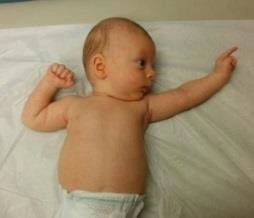Reflexes are involuntary movements triggered by specific stimuli. While some reflexes remain throughout life, like blinking or swallowing, others, present in newborns, disappear within months. This begs the question: how can these initial involuntary actions pave the way for learned voluntary behaviors?
Several reflexes in newborns demonstrate the fascinating transition from involuntary to voluntary control. The grasping reflex, for example, allows babies to automatically grip anything that touches their palm. While initially involuntary, this reflex lays the foundation for the later development of fine motor skills needed for intentionally grasping objects.
Similarly, the stepping reflex, where infants mimic walking motions when their feet touch a surface, precedes the voluntary behavior of walking. Though not walking independently, this reflex strengthens leg muscles and neural pathways necessary for future locomotion.
The rooting reflex, characterized by a baby turning its head towards a touch on the cheek, facilitates feeding. This reflex helps newborns locate the nipple for breastfeeding, eventually leading to the learned voluntary behavior of seeking and latching onto a food source. Even seemingly simple reflexes like the sucking reflex, which allows newborns to instinctively suck on anything that touches their lips, develops into the complex coordinated actions of feeding.
These early reflexes not only serve immediate survival needs but also provide a framework for future learning. Through repeated stimulation and feedback from the environment, infants begin to refine these initial involuntary movements, gradually gaining conscious control and transforming them into purposeful actions. The initial reflex provides the sensory and motor experience upon which more complex behaviors are built. As the nervous system matures, the cortex takes over, inhibiting the reflex and allowing for voluntary control.
In conclusion, the journey from reflex to voluntary action highlights the remarkable plasticity of the developing brain. Reflexes, initially involuntary, serve as crucial building blocks for the acquisition of complex motor skills and learned behaviors. They provide the initial sensory and motor experiences that lay the foundation for future learning and development, showcasing the intricate interplay between nature and nurture in shaping human behavior.
